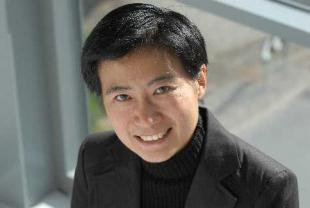“Do your best in whatever is given or available to you at the time and doors will open for you. Walk through the door that you chose to go into and continue to do your best and more doors will open.”
Professor Rebecca Cheung, Professor and Head of Research Institute, Integrated Micro and Nano Systems
Professor Rebecca Cheung received her secondary education in Scotland before gaining a first class honours degree in Electronics and Electrical Engineering from the University of Glasgow. She was awarded a scholarship from the Croucher Foundation to study towards a PhD, which she received from the same University in 1990.
During her PhD, Professor Cheung was a visiting researcher with the Semiconductor Technology Group at IBM Thomas J. Watson Research Centre in Yorktown Heights, USA and has since been a visiting scientist at Delft Institute of Microelectronics and Submicron Technology in The Netherlands; the Laboratory for Electromagnetic Fields and Microwave Electronics in Switzerland; and the Nanoelectronics Research Centre at the University of Glasgow, working on various topics related to semiconductor technology and gigabit electronics.
Professor Cheung serves on numerous conference committees and scientific panels. She had been elected a Fellow of the Royal Society of Edinburgh in 2012, is a senior member of the IEEE, a Fellow of the IET and is an Honorary Professor with the School of Engineering and Physical Sciences at Heriot-Watt University.
Professor Cheung joined the University of Edinburgh in 2000 and her current research interests include silicon carbide microelectromechanical systems, biomimetical systems and two-dimensional materials.
Here, Professor Cheung talks about her career pathway to becoming a professor of engineering and what advice she would give to young aspiring engineers in STEM.
What inspired you to get into engineering, is it the same thing that inspires you today?
My father inspired me to get into engineering. Being an electrical engineer himself, he advised me to take civil engineering at first, so my first year at the University of Glasgow was in civil engineering. But then, I changed to electronics and electrical engineering after my first year. So, I guess I was not so much inspired into engineering by myself, but rather by my family.
What inspires me today is quite different than back then. People grow and we all change. What inspires me today is the freedom to work with different people, academic and technical staff, students, administrators, scientists, and the freedom to work on different topics.
Tell us a bit about your career and studies in engineering up to this point; what have you enjoyed and what have you found most challenging?
I enjoyed studying engineering because the discipline is logical and is about solving problems. I think I like to get things working.
As for my career, I never really thought of my work as a career, although of course, we all work and have a title. I tended to do my work to the best of my ability, if I can, and see what happens. I do enjoy working though. People who know me will attest to it.
What I have found challenging are times when I do not know what is happening, but I suppose this is what research is all about.
Can you explain your research “in a nutshell?”
My research has changed over the years, but the main theme is nanoelectronics and microsystems. I develop nano- and micro- fabrication technologies to make devices, for example, sensors for biomedical and energy applications.
What attracted you to a career in research and academia?
I have always been interested in research, even during my early university days. Somehow, I always focussed on reading more research papers and doing more research. I find research free and liberating – perhaps because I am a bit nerdy. One can create ideas and try them out and if they work, it is very satisfying, and if not, I want to find out why, try again, until it works.
What do you enjoy most about research and academia at the School of Engineering?
Here at the School of Engineering, we have a certain amount of freedom. Colleagues at Edinburgh are excellent at what they do and they are open for many scientific discussions.
At the University, we can also collaborate with people from different Schools, this aspect I find very important and essential to develop new ideas and engage in projects of a multidisciplinary nature.
What career advice would you give to undergraduate and postgraduate students in STEM wishing to pursue a career in research and academia?
I would say – do your best in whatever is given or available to you at the time and doors will open for you. Walk through the door that you chose to go into and continue to do your best and more doors will open.
Take the opportunities as they become available to you at the time and do your best. Sometimes, it is impossible to see round the corner and it is important to think positive and stay happy.



